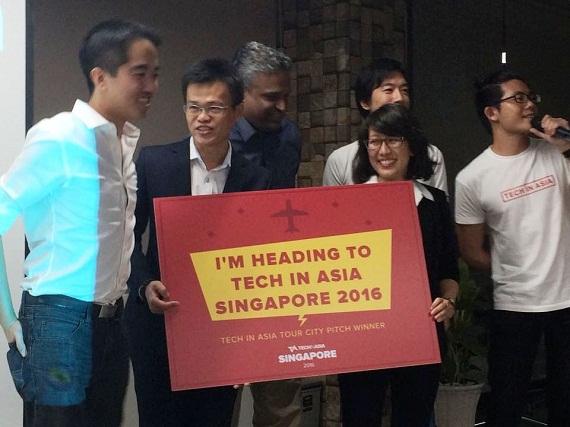HEADLINE
Asia Channeling Silicon Valley Through Tech Start Ups Comp
"Lots of countries want their own Silicon Valley, and Vietnam is certainly one of them. "

Lots of countries want their own Silicon Valley, and Vietnam is certainly one of them.
Last week, some Vietnamese entrepreneurs got a step closer to their tech dreams, thanks to a competition for startups.
Lien Hoang visited a co-working space in Ho Chi Minh City to meet the competitors.
If you learned anything about the Vietnam War, you probably heard how Vietnam was an underdog. The people were smart and determined, and that’s how they beat a way richer country, the United States.
Today, this actually is not a bad analogy for some tech startups. They’re full of smart young people who don’t have as much money as big corporations. But they work hard, and sometimes, their ideas can change entire industries.
Maybe that’s why startups are so popular in Vietnam -- they’re a way for underdogs to make it big.
Underdogs like Manh Tuan, whose website Ez4home.com helps people renovate their homes.
That’s him pitching his startup at a recent contest hosted by Tech in Asia, the media house. I attended the contest, and the room was so packed some of us had to stand and could barely hear the people talking.
There were five companies, and they had to convince the judges that, they had the best business plan. And the winner would get a trip to Singapore to meet investors and other startups.
One of the contestants was Windeliv, a smartphone app that connects shoppers with people who can deliver stuff to them by motorbike.
“In Vietnam there’s a lot of motorbikes,” says Windeliv founder Dinh Thanh Cong.
And he is right -- there are 90 million Vietnamese, and more than 40 million motorbikes. But I should let him continue.
“And unemployment rates are still high,” he says, “So that’s why I believe that this kind of business model can be successful in Vietnam. Not only Vietnam, but also Laos, Thailand, Cambodia, India, and Indonesia.”
You might think the startup scene is kind of similar everywhere [right]. You have techies taking their coding skills, and then teaming up with business people who are good at marketing or accounting.
But startups are also personal to each country.
For example, another contestant was BeeIO, which brings technology to agriculture.
And that makes sense when you remember that two-thirds of Vietnam is rural. There was also Vice App, which pushes e-commerce for physical stores, because Vietnamese still do most of their shopping in person.
These two didn’t win the Tech in Asia competition. Here’s one of the three judges, Ryu Hirota, describing the company that did win.
“There’s no language barrier,” says Hirota, “There’s technically no border barrier. So I think they can deploy to many countries in Southeast Asia, as they stated.”
That’s why the judges didn’t take very long to reach a verdict.
“It was a consensus. So there were not so many reasons, we didn’t discuss that much,” he says.
So – who was the winner?
It’s called HTK Inc, which created Antbuddy, a type of software that helps coworkers communicate with one another in real time. I asked the product manager An Ha how victory felt.
“My name’s An, I’m with the Antbuddy team, we just won the trip to Singapore with Tech in Asia,” she says, “And we are very, very excited. I can tell you that my mouth has been hurting from smiling too much. So that’s how happy we are.”
Ha said the best part was that her company would get a lot more exposure now.
“We haven’t got any funding whatsoever, and we’re looking for funding. So through these events, through the Tech in Asia conference, we have more chance to meet investors,” she says, “And by winning this, it gives us credibility because the judges here believe in our potential, the potential of our tool, and also the potential of the market we serve.”
For startups in the audience that wanted to compete in the future, another judge, Eddie Thai, had some advice.
“Make sure you’re very clear about your problem statement,” says Thai, “Make sure you address the economics. Make sure you talk about how you are sustainably different from anything else.”
- eng
- Lien Hoang
- Vietnam silicon valley
- Startup Companies
- Vietnam Start up competion
Komentar (0)
KBR percaya pembaca situs ini adalah orang-orang yang cerdas dan terpelajar. Karena itu mari kita gunakan kata-kata yang santun di dalam kolom komentar ini. Kalimat yang sopan, menjauhi prasangka SARA (suku, agama, ras dan antargolongan), pasti akan lebih didengar. Yuk, kita praktikkan!